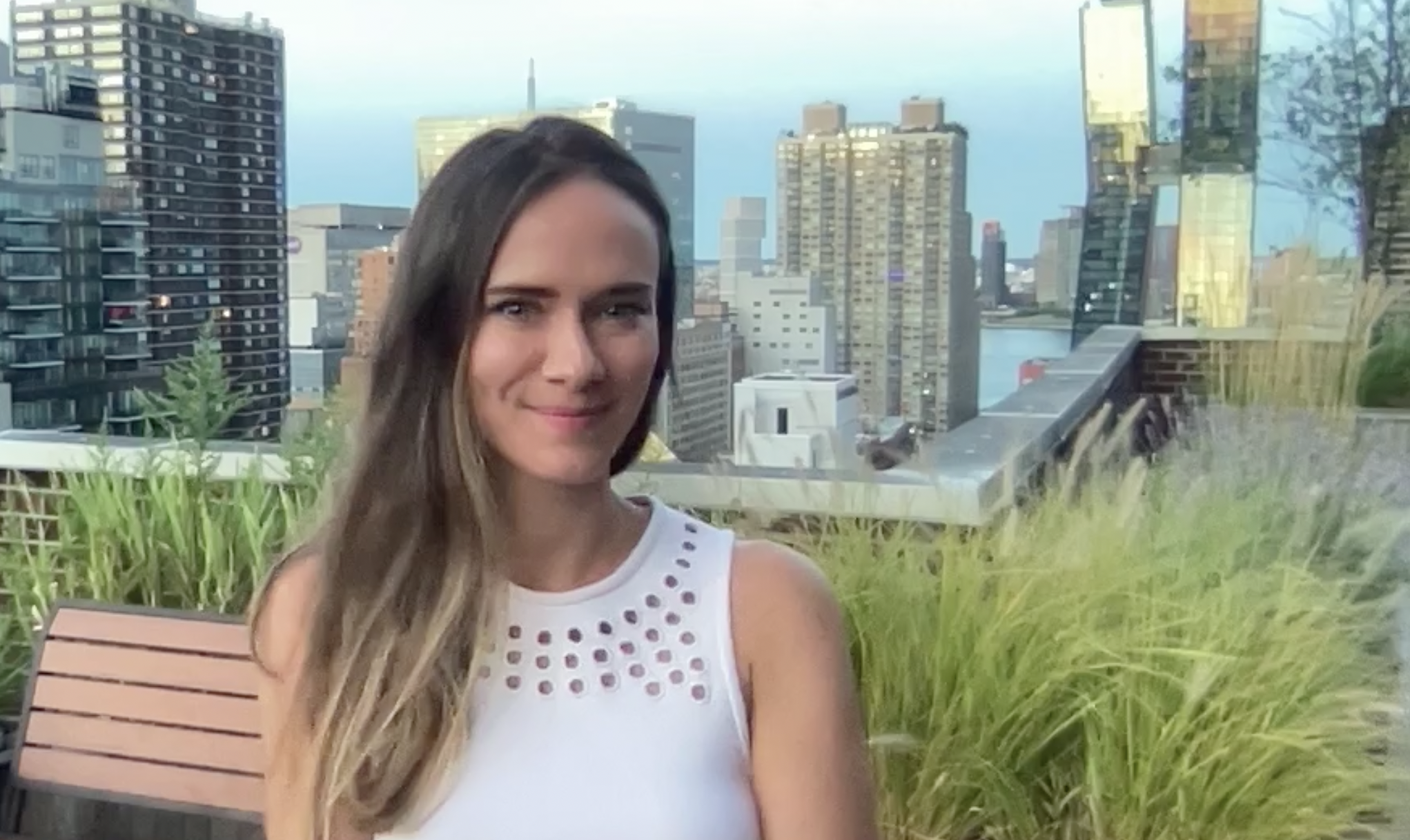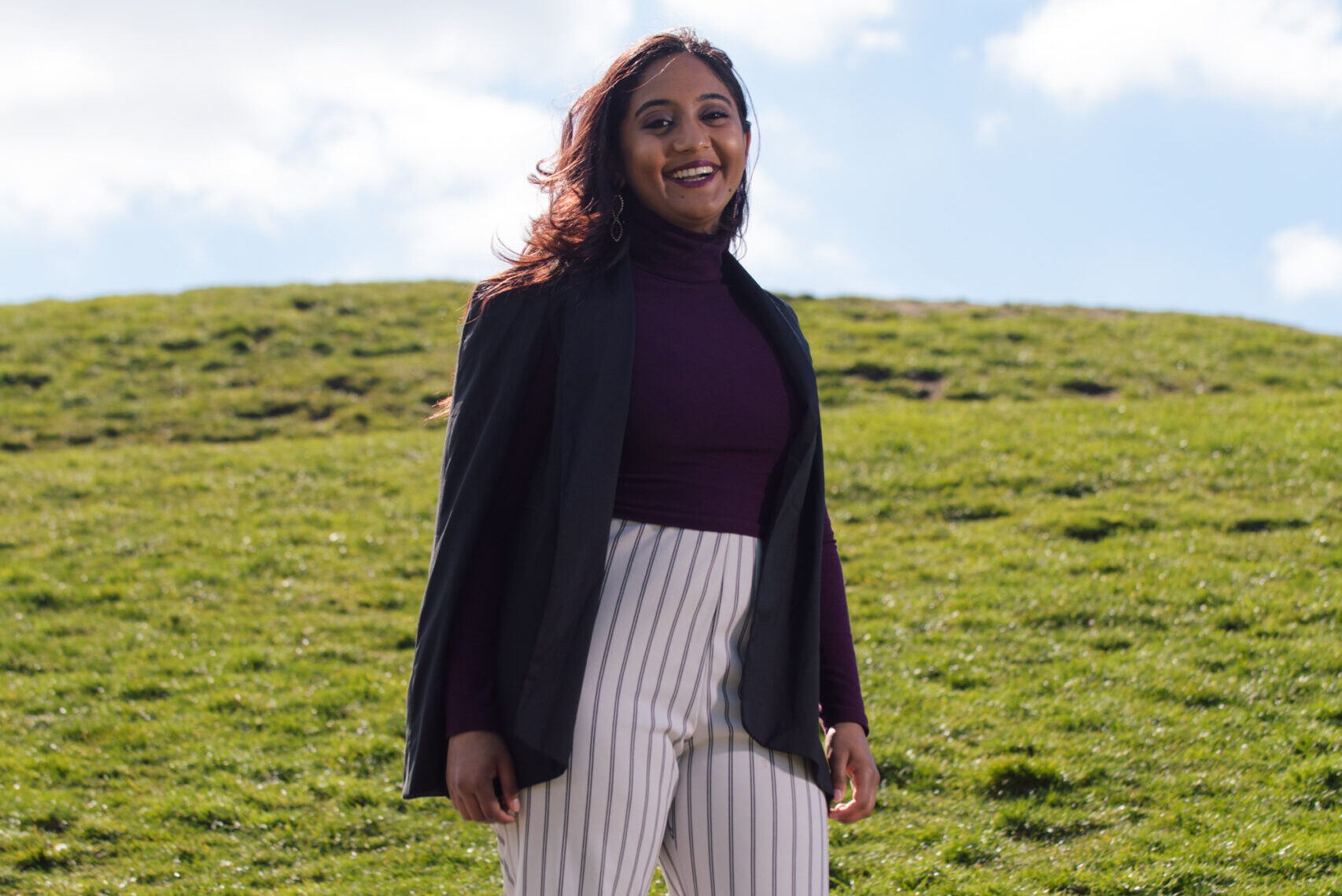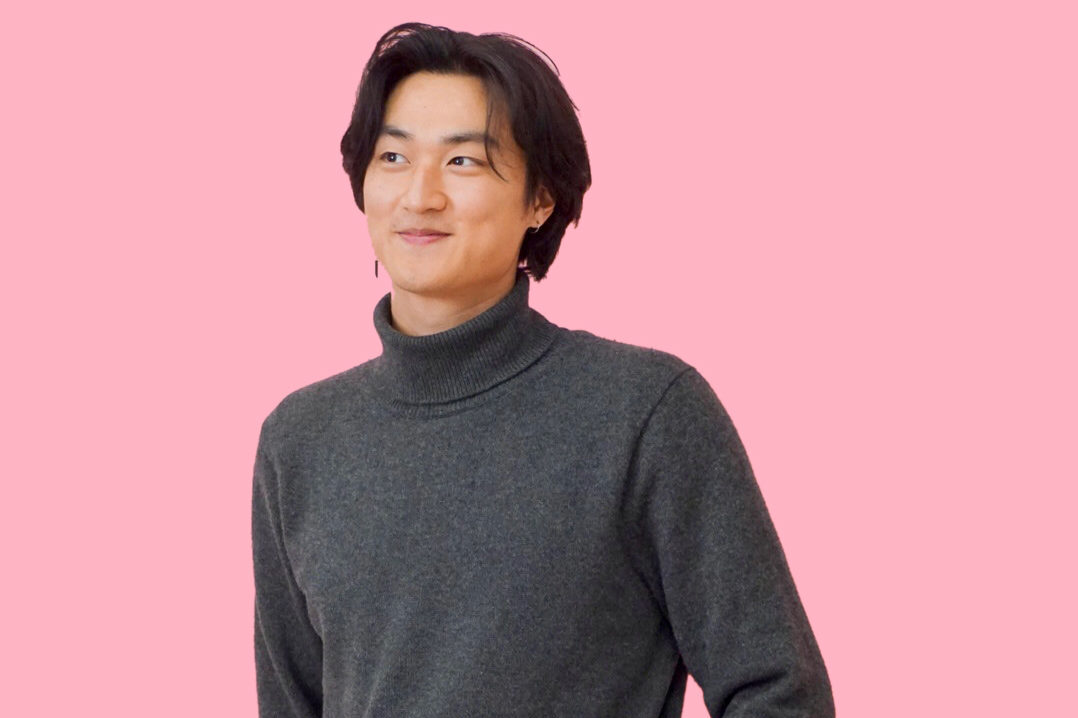Micaela O’Herron, Founder of Social Closet, Software Engineer, NYC

The Climate-Friendly Life is a series focusing on the successes and challenges we each face when trying to make climate-friendly lifestyle choices. No matter where you are on this journey from eco-curious to winning zero waste, it’s all good and we wanna hear about it. Drop us a line at blog@generationenvironment.com if you want to share your story with the We Are All Gen E community.

I’m from a big family and grew up in the Hudson Valley [New York]. We lived in a really old house on land that used to be a farm, and since my dad liked to farm, we had lots of fresh fruits. I was privileged to have so much land to play around on outside, especially since we weren’t really allowed to watch TV. So I grew up appreciating beautiful nature all around me, and realized later in life how special that was and how it shouldn’t be taken for granted. I do feel that my experience was different than most Americans and that I developed very different habits.
My parents were both teachers and conscious about consumption and waste, so those values are ingrained in me. For example, the habit of not overdoing it. I wasn’t raised to think it’s ok to take two showers a day for 20 minutes like some people do, and instead I’m very mindful of my water usage. We also didn’t have AC in our house, and now even though my NYC apartment does have AC, I never use it. I’m thinking about the energy it requires and how I don’t actually need to have it on.
My family was also really good about recycling and since we didn’t have garbage pickup at our house, we had to bring our trash and recycling to the center ourselves. This makes you more aware of the trash you are generating.
ON CLIMATE
I definitely think about climate change a decent amount, but not until recently. It probably started when I began working on my startup (a peer to peer clothing rental platform) since I started researching the clothing industry. During this same time, I remember that I was bragging to my brother about how I live a low carbon lifestyle, because I don’t own a car. His response to me was ‘but yeah look at all the clothes you buy’, and he told me how much water went into creating a t-shirt. That was eye opening for me, especially since I’ve always been so mindful about waste.
My fashion industry research showed me just how much waste is produced, and I started to see how bad it is for the environment, how much plastic goes into clothing, and that it takes hundreds of years for plastic to decompose. After you become aware of how things are actually made and what their environmental impact is, you look around and you start seeing plastic everywhere. I read this blog about living plastic free and it seemed so hard to do. You basically can’t wear any makeup! But all this helped me realize how omnipresent plastic is and how the endless list of everything we consume is plastic – even our clothes.
ON CONSUMPTION
Once or twice for Lent I gave up shopping. So for 40 days I didn’t buy anything new. I wanted to see how long I could go, and I was able to last another few months without buying anything. It was shopping in general, but for me that’s mostly clothes because that’s what I was most addicted to. It makes you think about why we even feel the need to keep buying things. I’ve heard it put this way: we’re always thinking we can buy our way into being happy or fulfilled. Whether conscious or not, you think ‘oh if I have this perfect pair of shoes I’d feel great about myself and be more productive’. So it’s the cognitive separation of those things, realizing you can’t buy your way into anything. I am now much more aware of my own consumption, and it actually brings me joy to consume less.
ON FASHION AND BUYING CLOTHES
Learning those basic facts on waste in fashion felt close to home and drove me to look at my own behavior in fashion. I buy a lot of clothes, use retail therapy all the time, and honestly don’t get much use out of my clothes. I wondered if I’m doing this, how many other people are doing this? So I started looking at how to change my own behaviors and the behaviors of the people around me. I use this mentality with my business as well, thinking a lot about why we do the things we do and then how we can change that behavior.
I realized that for most of the clothes I’ve bought, I didn’t think much about the purchases at all, particularly about the larger environmental impact, since I didn’t know it was a problem. But now that I know the negative impacts of the fashion industry, I ask myself what can I do? First, I can consume less. When I stopped buying clothes, I realized how much I already have. This gave me the idea to develop a wardrobe tracker for my website so I could track what I wear every day. I’m very visual, so seeing how many times I wear each piece of clothing in my wardrobe is really helpful. It’s also fun to get creative about how to get more use out of your own clothes. I find joy in shopping my own closet and even setting goals for myself to wear what I already have. It eventually becomes a habit that’s easy to keep.
I’ll admit that I do still buy clothes, but 90% are second hand. I started using thredUP for this, which helps make retail therapy more sustainable. I’m also buying less in general and just being more conscious about my purchase decisions. All of this has led to a changed relationship between me and my clothes – I now see them as things of greater value.
ON FOOD, SOAPS, AND FLIGHTS
Because I’m mindful about waste and plastic is especially bothersome to me, I’ve continued to make changes in different parts of my life. The most obvious single step is to eliminate single-use plastic. One thing I did was go and buy reusable sandwich bags. Look at me, changing the world!
Something I’d like to do more of is to buy food with less packaging, like from co-ops where you can buy in bulk, or shop more at farmers markets. I don’t have a c-op near me, but I do try to make a note to bring a bag on Fridays to go to the farmers market. This all means you have to cook more, which can be hard when you’re used to doing things out of convenience. Like sometimes you want a quick thing from Trader Joe’s but it’s in plastic. I am always thinking about avoiding anything that is made of or will come in plastic, like plastic utensils or iced coffee.
In the shower I use bar shampoo and bar soap. I also use bar hand soap. My friend got me a bar shampoo from France as a gift and it was the best. Full disclosure, I sometimes still use a purple shampoo (that comes in a plastic bottle) for my hair color. So maybe half the time I use the plastic-free shampoo, but every little bit counts. And I recently saw a purple shampoo bar advertised so I’ll look for that. My plan for this year at Christmas is to give my sisters bar shampoo in their stockings to nudge them.
Flights are a problem area because I do fly places to travel. The next step would be to be more conscious, like cut down on weekend trips and instead stay longer in places. But it’s a hard one to change. Expensive flights help because I’m not flying as much.
I recently have been thinking about how the weight of things impacts the shipping because more fuel is needed to transport heavier items. And companies should be considering all of these factors, too. One of my cousins has a vineyard, and for example they purposefully designed their wine bottles to weigh less so that it’s better for the environment when shipped.
ON INFLUENCING OTHERS
It’s hard to convince people to do things, especially when I’m not doing everything. But I’ve definitely shamed my siblings into not buying plastic water bottles, which they constantly used to do. I once yelled at my sister and cousin because they turned on the AC before opening the window. They started calling me “Energy Saving Mildred” for this – as if that’s a bad thing! It’s not that they were opposed to doing the right thing for the environment, it’s just that neither of them think about it. And they didn’t want to get yelled at.
On a larger scale, it helps to incentivize people and to de-incentivizing the harmful behaviors.
For example with plastic, the cost of getting rid of things should be included. I’m not as familiar with the proposed climate and environmental policy, and it can be overwhelming. But I do know that you need to act individually versus waiting for the policy or for other people to do it for you. What I can do is focus on myself and my individual actions, which in turn will influence those around me.



